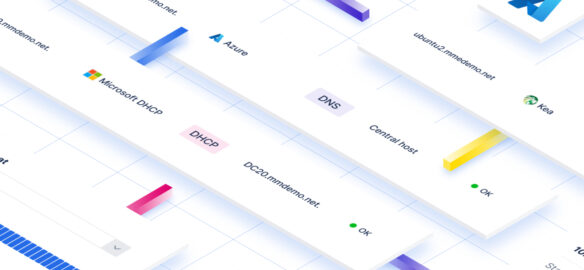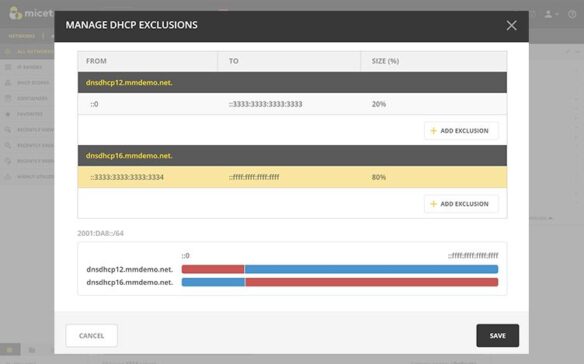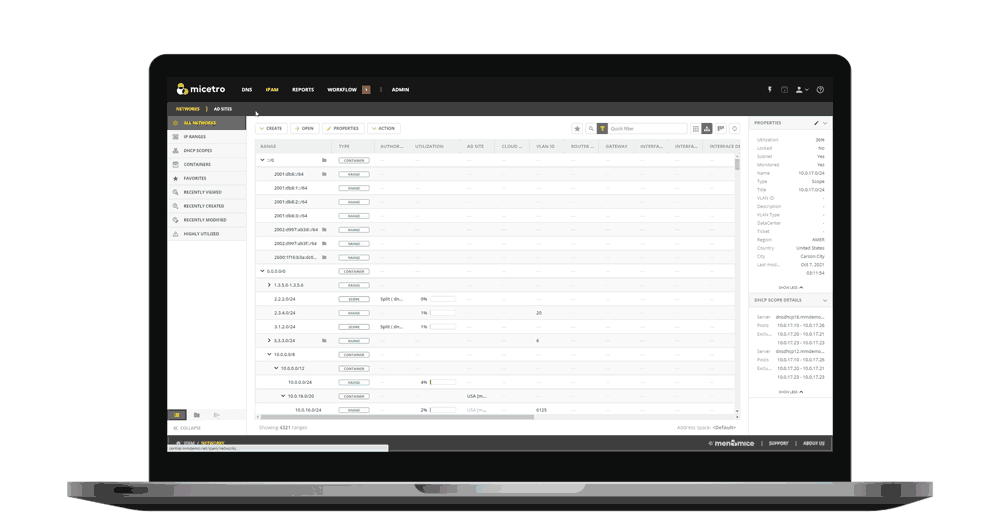
Effortless DHCP management for performance and reliability
Micetro is designed to facilitate uninterrupted connectivity in any network environment and provide DHCP management for a wide range of servers within a single UI. It streamlines DHCP operations by centralizing control, enforcing policies, and optimizing resource allocation.
Join industry leading companies
DHCP stands for “Dynamic Host Configuration Protocol”.
DHCP is the standard mechanism to dynamically assign IP addresses within a network. Servers and clients use DHCP to automatically assign IP addresses within a network.
At home, your router is typically a DHCP server as you use Wi-Fi on your home network. In a large enterprise setting a DHCP server is usually a dedicated computer.
DHCP is important because it simplifies IP address management, is more secure, and doesn’t eat up valuable admin time.
A client device (or DHCP client), such as a laptop, joins a network and requests an IP address. The request is made to a DHCP server. The server will quickly and automatically assign an IP address and some related network configuration parameters. Once the device has accepted the assignment, it can communicate with both the internal network and the public internet.
The main difference between DHCP and stat IP addressing is that DHCP automatically assigns temporary IP addresses to devices, while static IP addressing involves manually assigning permanent IP addresses.
DHCP is usually the preferred choice for most devices due to its cost efficiency, security, and ease of management and flexibility. Alternatively, static IP is preferable for critical devices that are always on and need a consistent address.

